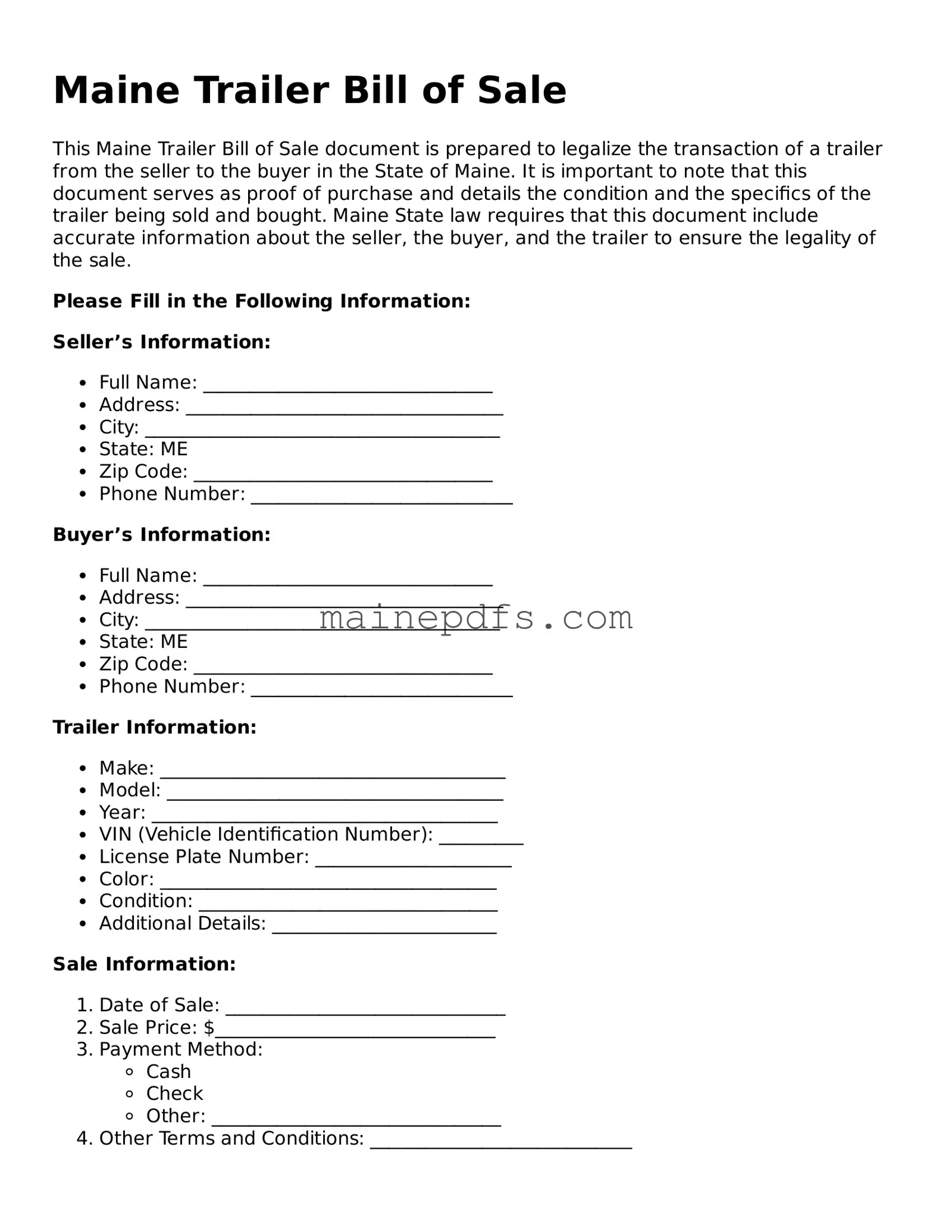The Maine Trailer Bill of Sale form is similar to the Motor Vehicle Bill of Sale. Both serve as legal documentation highlighting the transfer of ownership from a seller to a buyer. This includes vital information like the make, model, year, and VIN, ensuring the sale is recognized by the state. Each form acts as protection for both parties, providing evidence of the transaction's terms and conditions.
Comparable to the Boat Bill of Sale, this document covers similar territory but for marine vessels. It records the sale of a boat, including specifics about the vessel, such as length, type, hull identification number, and any included accessories. Both documents are crucial for registration purposes in their respective categories, ensuring the new ownership is legally documented and recognized.
Like the Firearm Bill of Sale, this form provides a detailed record of the sale and transfer of ownership of a specific item, in this case, a trailer. Both documents list identifying information about the item sold and include personal details about the buyer and seller. They’re important for liability reasons, ensuring the seller is freed from responsibility once the item is sold.
The General Bill of Sale is a broader document, covering a wide array of items ranging from electronics to furniture. The Trailer Bill of Sale is more specific but similar in function, offering a legal receipt that details the transaction between buyer and seller, including the price and condition of the item sold. Both documents serve to protect the rights of both parties involved.
The Equipment Bill of Sale closely aligns with the Trailer Bill of Sale, focusing specifically on the sale of machinery or equipment. It documents the transaction details like make, model, serial number, and conditions of the sale, which mirrors the structure and purpose of the trailer sale form. This is particularly useful for businesses and individuals in trades or industries where equipment changes hands frequently.
The Livestock Bill of Sale is another document with similarities, especially in its role of transferring ownership of specific assets - in this case, animals. It contains detailed information about the livestock, including breed, health status, and any relevant registration numbers, paralleling how the Trailer Bill of Sale specifies details about the trailer. It's essential for record-keeping and proving ownership.
An Aircraft Bill of Sale shares a unique resemblance, documenting the sale and transfer of an airplane or helicopter. Like the Trailer Bill of Sale, it includes specific details such as make, model, serial number, and FAA registration, which are critical for legal and registration purposes. Both forms are vital in their respective fields for establishing the new rightful owner.
The Mobile Home Bill of Sale, much like the Trailer Bill of Sale, is necessary for the sale of a mobile home, including specifics about the make, model, and serial number. It ensures that all aspects of the sale are legally documented, providing a clear transfer of ownership. Both documents are indispensable for registering the new ownership with the appropriate local authorities.

